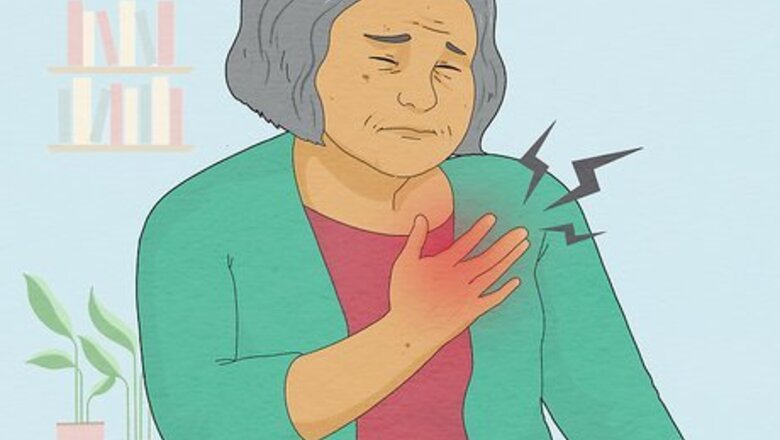
views
- See a doctor for diagnosis and treatment if you're experiencing symptoms like nausea, vomiting, confusion, or seizures.
- Talk to your doctor about prescription medications like Tolvaptan if you have chronic low blood sodium.
- Get intravenous fluids administered at a medical facility if you need to raise severely low sodium levels quickly.
- Drink sports drinks (especially if you're active) and avoid taking diuretics if you experience low blood sodium levels.
Symptoms
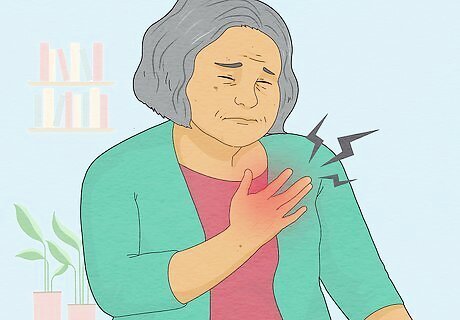
Watch for symptoms if you have a condition that increases your risk. Having a diagnosed condition increases your risk of low blood sodium. This means that you’ll need to be extra careful and be on the lookout for symptoms. Some conditions that put you at risk of low blood sodium include: Kidney disease, heart disease, or liver cirrhosis Being over the age of 65 Taking certain medications, such as antidepressants, diuretics, and some pain relievers Intensive training/exercise (triathlons, marathons, and ultramarathons)
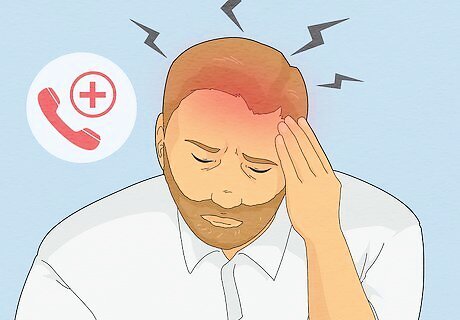
Call your doctor if you experience symptoms of low sodium. A mild or moderate case of low sodium is usually not an emergency, but it's important to watch for symptoms if you’re at risk of low blood sodium levels. However, keep in mind that symptoms of low sodium may also be symptoms of another medical issue. Call your doctor if you experience: Nausea Headaches Cramping Weakness
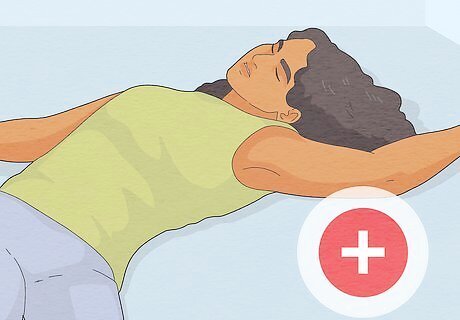
Seek immediate medical attention for severe symptoms of low sodium. Decreased sodium electrolytes in the body can be harmful to you, especially if it's severe. The condition can even be fatal if it's left untreated. Seek immediate medical attention if you experience any of the following: Nausea and vomiting Confusion Seizures Loss of consciousness
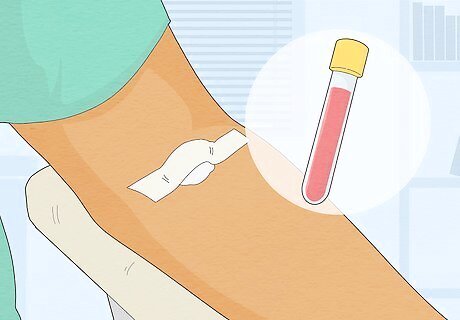
Get your blood sodium level tested if you think it might be low. If you experience symptoms of low sodium or otherwise suspect that your sodium levels are low, visit your doctor. The only way to confirm low blood sodium level is by getting a blood test or a urine test. Low blood sodium can be a serious condition, so it’s important to get treatment right away if you suspect a problem. Write down the symptoms you've been experiencing so you can go over them with your doctor. You may want to jot down any specific questions you have for your doctor, as well, so you're prepared. If your blood test shows sodium levels lower than 135 mmol/L, your doctor will diagnose you with hyponatremia.
Medical Treatments
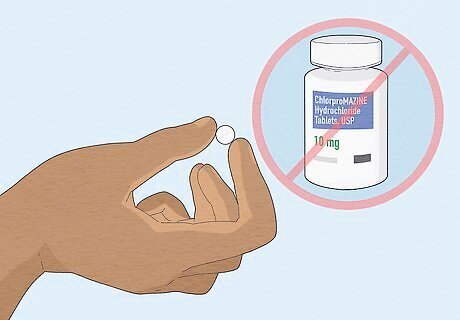
Stop taking your medication if your doctor instructs you to. There are several drugs that can cause low blood sodium levels, and stopping the medication may be all it takes to correct the problem. Tell your doctor about any prescription, over-the-counter, or illegal drugs you take regularly. Drugs that commonly cause hyponatremia include: Thiazide diuretics Selective serotonin reuptake inhibitors (SSRIs) Carbamazepine (Tegretol) Chlorpromazine (Thorazine) Indapamide (Natrilix) Theophylline Amiodarone (Cordarone) Ecstasy (MDMA)
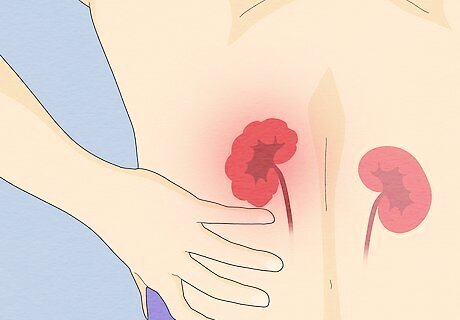
Treat any underlying conditions that may be causing low sodium. If your low sodium levels are the result of another condition, it will require treatment. Treating the underlying problem may resolve the low sodium levels. However, if the condition is not treatable, then you'll need to take medication. Health issues that may cause low blood sodium include: Kidney disease Heart disease Liver cirrhosis Syndrome of inappropriate anti-diuretic hormone (SIADH) Hypothyroidism Hyperglycemia (high blood sugar) Severe burns Gastrointestinal illnesses that cause diarrhea and vomiting
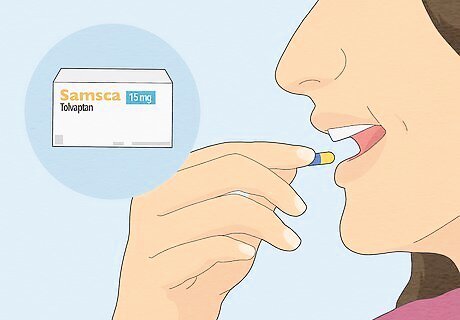
Ask about medications to treat chronic low sodium levels. If your low sodium levels don’t improve using other treatment options or if there are not any other options, then your doctor may prescribe a medication that will raise your blood sodium levels. Use the medication exactly as instructed and don’t take more than the recommended dose. Tolvaptan (Samsca) is a common medication that is used to treat low sodium. Tell your doctor about any other medications you are taking and follow your doctor’s instructions for how to take this medication. If you take Tolvaptan, consult with a nephrologist so you don’t increase your blood sodium levels too much.
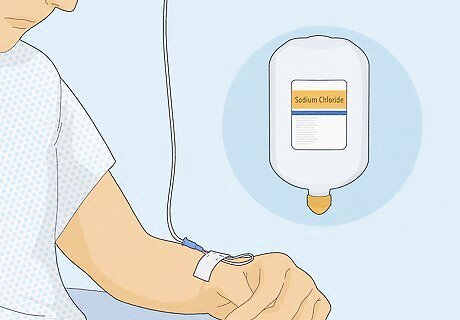
Get intravenous fluid to raise severely low sodium levels quickly. Intravenous isotonic saline solution may be required if a person goes into shock as a result of volume depletion caused by low sodium. This would be an acute or severe case of low sodium. Immediate intravenous fluids should help to restore balance, but a hospital stay will also usually be required in this situation. Sepsis or a blood infection can cause your blood sodium levels to drop severely.
At-Home Treatments
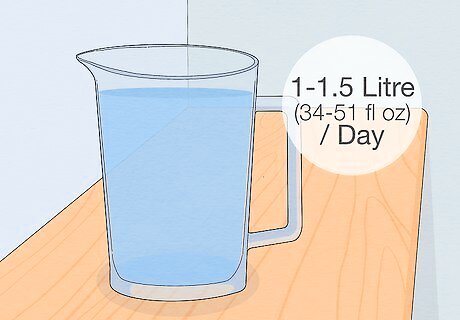
Limit your water intake to 1–1.5 L (34–51 fl oz) per day if your doctor advises it. Drinking too much water can dilute the sodium in your bloodstream causing your sodium levels to decrease. It may be possible to increase your blood sodium levels by cutting down on your fluid intake. However, check with your doctor before doing this. Limiting water consumption usually only happens if you’re diagnosed with low sodium due to syndrome of inappropriate antidiuresis (SIADH). Your urine and thirst level are good indicators of whether or not you are getting enough water. If your urine looks pale yellow and you aren't thirsty, then you're well-hydrated.
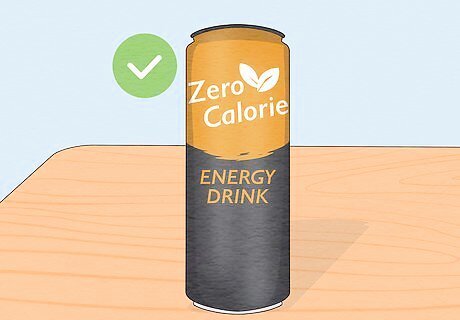
Drink sports drinks if you're active. If you’re an athlete or a person who performs a lot of activities and who sweats a lot, you may find sports drinks helpful for maintaining normal sodium levels. Drinking sports drinks will help you replenish the lost sodium electrolytes in your bloodstream. Drink a sports drink before, during, or after your workouts. Sports drinks contain essential electrolytes, such as sodium and potassium.
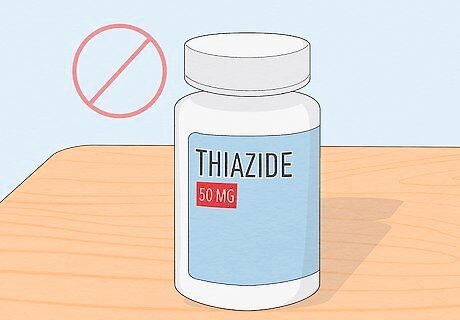
Avoid taking diuretics unless your doctor advises you to do so. Unless you have a pre-existing medical condition and have a prescription from your doctor, don’t take diuretics. These are better known as “water pills” because they stimulate urine production thus preventing water retention in the body. However, these medications can also cause dehydration. Thiazide diuretics are known to cause low blood sodium levels.




















Comments
0 comment